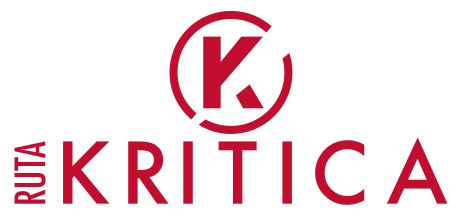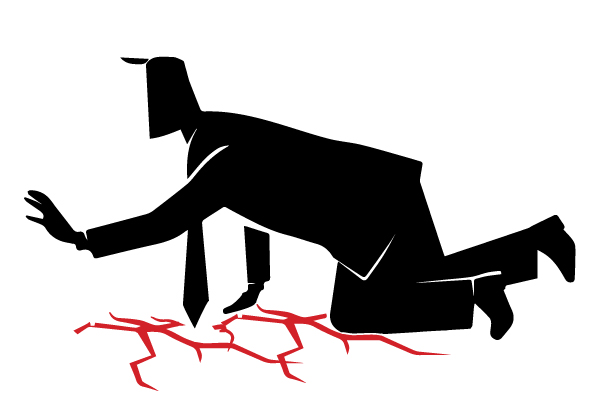By Fidel Narváez
Ecuador, which barely eight years ago earned global respect for its progressive policies, is now on the verge of one of the most decisive moments in its recent history. On November 16, the government is pushing a referendum aimed at opening the grave in which it intends to bury one of the most advanced constitutions on the planet.
The country that between 2007 and 2017 achieved its best social and economic indicators is today sinking into the logic of a failed state, governed by fear and arbitrariness.
Just a decade ago, Ecuador was the second safest country in Latin America, with a homicide rate of 5.8 per 100,000 inhabitants. Today that figure has increased tenfold, and the country is projected to close 2025 as the most violent in the world.
How can such deterioration be explained in a country that is not at war, has not suffered natural disasters, and is not under economic blockade? The main answer is the return of neoliberalism and, since 2023, a militarized version of neoliberalism.
Under the pretext of fighting organized crime, President Daniel Noboa has decreed fourteen states of emergency—80% of his time in office. Basic rights such as the inviolability of the home, freedom of movement, and freedom of assembly have been practically eliminated.
Human rights organizations have reported at least 43 forced disappearances at the hands of police and military forces. The most shocking case is that of four Afro-Ecuadorian children—one of them only 11 years old—whose bodies were found burned and bearing signs of torture in December 2024.
According to Human Rights Watch, during the October 2025 protests there were 377 reports of human rights violations: three people killed by the military, 282 injured, 15 disappeared, and 172 detained. All of this in a prison system that has the highest rate of violent deaths on the planet—more than 700 since 2018, 123 of them under the current government.
Meanwhile, the World Customs Organization confirms that Ecuador has become the origin of 30% of the cocaine seized in maritime containers worldwide. A narco-state in every sense. And the irony is grotesque: a large share of these seizures come from banana shipments linked to the business empire of the richest family in the country—the family of President Noboa, who is theoretically responsible for combating drug trafficking.
One of the key questions in the November 16 referendum asks whether the Constitution should be changed. With this, the government seeks to open the door to the privatization of strategic sectors and dismantle the social and environmental protections that still safeguard the population and nature. The Ecuadorian Constitution is a global pioneer for recognizing the rights of nature—an obstacle for the mining industry, in which the Noboa family also has interests.
Another question seeks to legalize the presence of foreign military bases on Ecuadorian soil, something explicitly prohibited by the current Constitution. Noboa even proposed the Galápagos Islands as a site for a U.S. military base. After massive public rejection, he retreated in words—but no one should believe him. Washington is not interested in the Galápagos because of drug trafficking; it wants them for their strategic position in the heart of the Pacific, central to its rivalry with China.
The Ecuador of Rafael Correa—who made history by protecting Julian Assange—also exercised sovereignty when it expelled the U.S. military base in Manta in 2009 and placed a constitutional lock to prevent its return. That lock is what Noboa now seeks to break, exploiting the fear he has helped deepen and the forgetfulness of those who did not live in the Ecuador prior to the Citizens’ Revolution.
International experience disproves the idea that a U.S. military base improves security. The opposite is true. During the ten years of U.S. presence in Ecuador (1999–2009), the homicide rate increased by 33%. Added to this are grave abuses documented by human rights organizations: around 40 Ecuadorian civilian boats were allegedly sunk illegally, leaving around 100 victims among the disappeared and affected—all of them in impunity due to the legal immunity granted to U.S. forces.
That same immunity protected military personnel and diplomats involved in murders committed on Ecuadorian soil. Before the referendum, it is worth recalling some names: sailors Ronald Endy and Brandon Fausti, who beat Simón Bolívar Chanalata to death; military supervisor Damon Plyler, who in 2003 ran over and killed Víctor Mieles Rodríguez; and Peter Karmilowicz, the diplomat who in 2001 shot and killed young Pablo Jaramillo after a traffic dispute.
None of them faced Ecuadorian justice. None received even a fine. That is the price of surrendering sovereignty.
This November 16, Ecuador stands before a red line. What is at stake is not a technical reform or a minor change of rules, but the future of a Constitution that protects rights, sovereignty, and nature. The country must decide whether to defend those guarantees or allow an authoritarian neoliberalism to keep dismantling them and deepening the path toward militarization and geopolitical submission.
The nation is at a decisive crossroads. The choice is stark: preserve its sovereignty, or surrender it.

